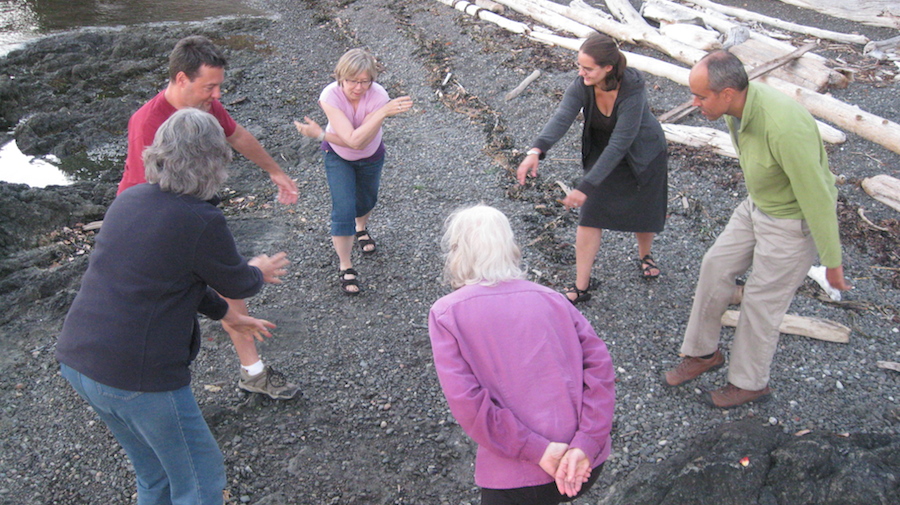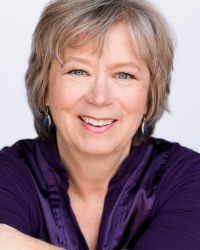
The Alexander Technique Coming to UW
Cathy Madden is the principal lecturer for the University of Washington’s Professional Actor Training Program. She’s also the director of the Alexander Technique Training and Performance Studio in Seattle and was a student of fabled Alexander teacher Marjorie Barstow for nearly 20 years. She’s agreed to share her expertise with her colleagues as part of The Whole U Speaker Series. But what is the Alexander Technique? Cathy explains it in her own words:
I recently had the opportunity to take an excellent class about acting. The teacher was very good.
And I left amazed and somewhat dismayed because the language of the teacher, and the language of my mostly younger fellow participants perpetuated a way of talking that has been demonstrated to be false for over a century. It is not true and not possible to “get out of your head” or to only “get in your body”.
We are whole. We are whole. We are whole.
It is well past time to cooperate with human design in a way that insists on nourishing our integrated self.
My teacher, Marjorie Barstow (1899-1994), first graduate of F.M. Alexander’s first teacher training course, sometimes said “It’s just too simple for you” when asked about the Alexander Technique.
And it is simple. We have a design for living that involves how we move through our days—and the quality of everything we do improves when we are cooperating with that design.
 When my daughter was six, someone asked her what the Alexander Technique was and she said “oh, it just means you don’t have to scrunch up your neck all the time.” (The same daughter has more recently stuck her head in a colleagues’ lab and said “you know, you don’t have to scrunch up your neck to weigh algae.”)
When my daughter was six, someone asked her what the Alexander Technique was and she said “oh, it just means you don’t have to scrunch up your neck all the time.” (The same daughter has more recently stuck her head in a colleagues’ lab and said “you know, you don’t have to scrunch up your neck to weigh algae.”)
That information about the head and spine is the key to renewing cooperation with how we are made to create our daily lives. Learning a process that gives you a way to consciously cooperate with that design is the heart of the teaching I do.
Some people study this process because how they are moving in their lives is causing pain or anxiety, some people come to it because they have reached a “plateau” in performing arts, sports, or communication, some come because a friend told them they ” needed” it. Whatever the reason for learning the Alexander Technique, everyone who studies it leaves with more freedom of choice in how they approach tasks, and a life-long ability to optimize the quality of their actions in the world.
In a recent workshop in Osaka, it occurred to me that using the Alexander Technique is an exercise in kindness to myself because it prompts me to choose to use my full resources in whatever I am doing. My most current one-line description of the Alexander Technique emerged:
The Alexander Technique is constructive, conscious kindness to ourselves, cooperating with our design and supporting our desires and our dreams.
Learn more directly from Cathy at the HUB on Tuesday, February 17 from 5:30 – 6:30 p.m. There are only a few spaces available so register here or check back to see if more spots become available. (Whole U participants can unregister for our events if they are no longer able to attend.)
Many thanks to Cathy for sharing the Alexander Technique with us!